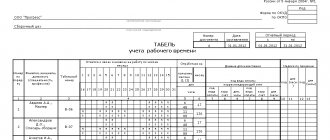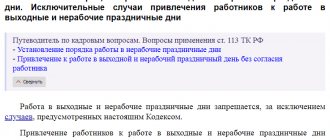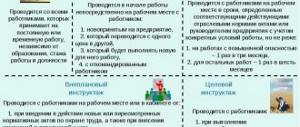Legislative framework
General requirements for employers and restrictions regarding the use of hired labor of persons who are under 18 years of age at the time of concluding the agreement are established by labor legislation and special laws, Decrees of the Government of the Russian Federation and other regulations. The issues covered by the above documents include:
- hiring and dismissal;
- list of activities;
- features of the contract;
- duration of the working day;
- duration of vacation.
Before the entry into force of federal law No. 139-FZ of July 1, 2017, employers had the right to hire children under the age of 14 only during the period when the child was free from training. For those who were expelled from school or had already received an education document, admission rules were not established at all. With the introduction of this law, employers have the opportunity to hire those who were under 14 years of age at the time of concluding the contract. Restrictions on this norm are imposed by Article 63 of the Labor Code of the Russian Federation.
From the age of 14 (until the age of 15), managers have the right to hire only with the consent of one of the parents, with written permission from the guardianship or trusteeship authority. The main requirement established by law for employers is that the work of minors must be light in nature and in no way harm their health or impede their development. Restrictions on engaging in part-time work are established by Part 5 of Article 282 of the Labor Code. Government Decree No. 163 of February 25, 2000 adopted a list of types of work for which employers do not have the right to hire minors.
Labor Code of the Labor Code of the Russian Federation
Chapter 42. Peculiarities of labor regulation for workers under eighteen years of age
Article 265. Work in which the employment of persons under the age of eighteen is prohibited
It is prohibited to employ persons under the age of eighteen in work with harmful and (or) dangerous working conditions, in underground work, as well as in work the performance of which may harm their health and moral development (gambling business, work in night cabarets and clubs , production, transportation and trade in alcoholic beverages, tobacco products, narcotic and other toxic drugs).
(as amended by Federal Law No. 90-FZ of June 30, 2006)
It is prohibited for workers under the age of eighteen to carry or move heavy loads that exceed the limits established for them.
The list of jobs in which the employment of workers under the age of eighteen is prohibited, as well as the maximum weight standards are approved in the manner established by the Government of the Russian Federation, taking into account the opinion of the Russian Tripartite Commission for the Regulation of Social and Labor Relations.
Article 266. Medical examinations (examinations) of persons under the age of eighteen
(as amended by Federal Law No. 90-FZ of June 30, 2006)
Persons under the age of eighteen are hired only after a preliminary compulsory medical examination (examination) and subsequently, until they reach the age of eighteen, are subject to a mandatory medical examination (examination) annually.
(as amended by Federal Law No. 90-FZ of June 30, 2006)
The mandatory medical examinations (examinations) provided for in this article are carried out at the expense of the employer.
(as amended by Federal Law No. 90-FZ of June 30, 2006)
Article 267. Annual basic paid leave for employees under the age of eighteen
Annual basic paid leave for employees under the age of eighteen is provided for a duration of 31 calendar days at a time convenient for them.
Article 268. Prohibition of sending on business trips, engaging in overtime work, night work, weekends and non-working holidays of workers under the age of eighteen years
It is prohibited to send on business trips, engage in overtime work, work at night, on weekends and non-working holidays of workers under the age of eighteen (with the exception of creative workers in the media, cinematography organizations, television and video film crews, theaters, theatrical and concert organizations, circuses and other persons involved in the creation and (or) performance (exhibition) of works, in accordance with the lists of jobs, professions, positions of these workers, approved by the Government of the Russian Federation, taking into account the opinion of the Russian Tripartite Commission for the Regulation of Social and Labor Relations) .
(as amended by Federal Laws dated June 30, 2006 N 90-FZ, dated February 28, 2008 N 13-FZ)
Article 269. Additional guarantees for employees under the age of eighteen upon termination of an employment contract
Termination of an employment contract with employees under the age of eighteen at the initiative of the employer (except for the case of liquidation of the organization or termination of activities by an individual entrepreneur), in addition to compliance with the general procedure, is allowed only with the consent of the relevant state labor inspectorate and the commission for minors’ affairs and the protection of their rights.
(as amended by Federal Law No. 90-FZ of June 30, 2006)
Article 270. Production standards for workers under eighteen years of age
For workers under the age of eighteen, production standards are established based on general production standards in proportion to the reduced working hours established for these employees.
For workers under the age of eighteen who enter work after graduating from general education institutions and educational institutions of primary vocational education, as well as having undergone vocational training on the job, in accordance with labor legislation and other regulatory legal acts containing labor law standards, collective agreements, agreements , local regulations, or an employment contract may establish reduced production standards.
(as amended by Federal Law No. 90-FZ of June 30, 2006)
Article 271. Remuneration for workers under the age of eighteen with a reduced duration of daily work
With time-based wages, wages for employees under the age of eighteen are paid taking into account the reduced duration of work. The employer may, at his own expense, make additional payments to them up to the level of wages for employees of the corresponding categories for the full duration of daily work.
The work of workers under the age of eighteen who are admitted to piecework is paid at established piecework rates. The employer can set them, at their own expense, an additional payment up to the tariff rate for the time by which the duration of their daily work is reduced.
Remuneration for workers under the age of eighteen, studying in general education institutions, educational institutions of primary, secondary and higher vocational education and working in their free time from study, is made in proportion to the time worked or depending on output. The employer can provide these employees with additional wages at their own expense.
Article 272. Peculiarities of employment of persons under the age of eighteen
Peculiarities of employment of persons under the age of eighteen are determined by labor legislation, collective agreement, and agreement.
(as amended by Federal Law No. 90-FZ of June 30, 2006)
Working time distribution
When concluding a contract with a minor employee, it is extremely important to comply with the rules for the distribution of working hours both within a week and every day. A week in the workplace for those under 18 years of age can last no more than:
- 24 hours: up to 16 years old;
- 35 hours: 16-18 years old.
For those who under 18 years of age combine work with receiving education at a school or vocational educational institution, the maximum working time during the week should not exceed 50%. Thus, according to Article 92 of the Labor Code, minors in Russia must be hired to work exclusively on a reduced schedule. The employer has the right to request a certificate from the educational institution confirming that the employee is studying for the purpose of obtaining an education.
Another article of the Labor Code that imposes restrictions, this time on the length of the working day, is Article 94. According to it, employers have clear age limits for setting the start and end times:
- no more than 4 hours – at the age of 14-15 years;
- 5 hours – at the age of 15-16 years;
- 7 hours – at the age of 16-18 years.
When combining work and study, the working day of those under 16 years of age cannot last more than 2.5 hours. The older (16-18 years old) category of workers works half a day during a single shift. The Code imposes certain restrictions on the actions of heads of enterprises (organizations, institutions) in relation to the category of persons in question. They cannot be assigned to work that is performed overtime, as well as at night, on weekends and holidays.
It is not allowed to involve this category of workers in rotational work, work in harmful and dangerous industries, or underground work. Minors cannot be accepted into religious organizations. Working in gambling establishments can cause moral harm to them. This category is also prohibited for those under 18 years of age. By its Decree No. 163 dated February 25, 2000, the Government of the Russian Federation prohibited the employment of such workers at enterprises organizing transport traffic.
You cannot send minor workers on business trips. Persons who are under 18 years of age at the time of conclusion of the contract are exempt from the probationary period. Article 244 of the Labor Code directly prohibits employers from entering into agreements with the specified category on material liability - personal or collective.
The exception is those who work in the creative field (cinema, theater, etc.). The last restriction does not apply to them. The Decree of the Government of the Russian Federation dated April 28, 2007 established that if a position specified in the approved list is filled:
- employee positions – 170 titles;
- professions of workers - 19 names, recruitment to work is possible on the basis of filling a vacant position.
Another comment on Article 271 of the Labor Code of the Russian Federation
The general principle of remuneration for minors is that payment is made in proportion to the time they work or the amount of work, taking into account the working hours established for them.
In case of time-based wages, wages to employees under the age of 18 are paid taking into account the reduced working hours (shortened working hours for minors are established by Article 92 of the Labor Code of the Russian Federation, see the commentary to it).
With piecework wages, workers under the age of 18 are paid at established piecework rates.
At the same time, the employer, in addition to the general remuneration, based on its economic and financial capabilities, can establish additional payment for such employees at its own expense.
Providing leave and wages
The next large section of labor legislation, which contains specific features, is the provision of vacations. Persons under 18 years of age have the right to request a statutory period of rest before the expiration of the standard six-month period specified for most categories of workers in Article 122.
Similar preferences in the Russian Federation are provided to only two categories of persons:
- pregnant women and women who have given birth;
- those who have adopted a child who is not yet 3 months old.
The basis for granting leave is the application of a minor employee. After the employee turns 18, vacation time is calculated separately before and after his birthday.
The employer does not have the right to recall an employee from vacation, which by law lasts 31 calendar days (Part 3 of Article 125). The process of material compensation for such a revocation is prohibited on the basis of Part 3 of Article 126.
To determine production standards for minors, the same methodology is used as for all other categories of citizens - in proportion to the officially established shortened length of the day (week). This norm is established by Article 270 of the Labor Code. A graduate of a school, technical school or vocational school who has undergone industrial training and who has been hired can receive a salary based on reduced production standards.
If the enterprise has established a time-based wage system, the legislator, in Article 271 of the Labor Code, allows the employer to pay minors up to the level of ordinary full-time workers. The piecework system involves payment of labor at rates established for each profession.
For those who work during their free time from studying, two types of rationing can be applied:
- Proportional to the time worked during the paid period.
- Based on actual production.
The employer is not obliged, but has the right to pay extra using his own financial sources.








